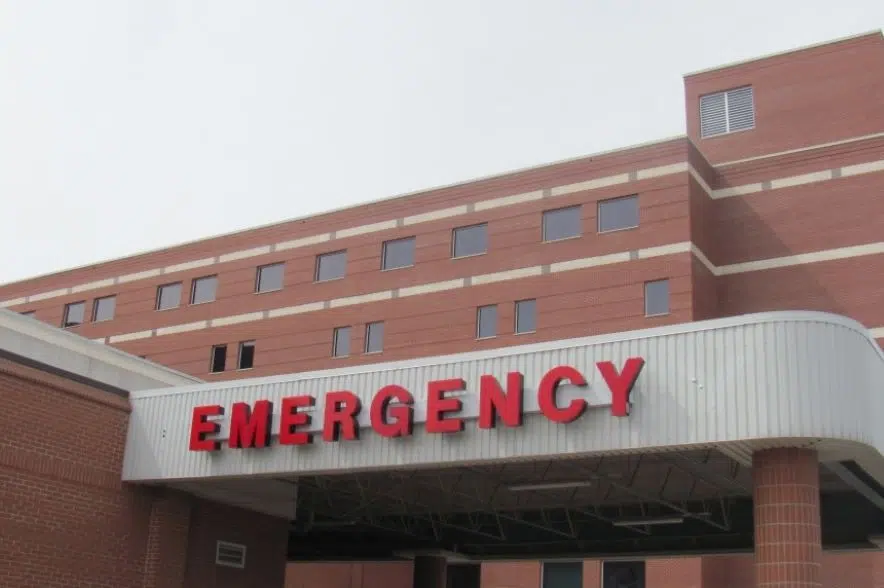For about three hours last week, the emergency room at the Regina General Hospital was so overcrowded, it had to go on bypass and send all but the most severe cases to the city’s other hospital.
“They were completely full. There were 85-plus patients in the emergency room who were requiring care. It was a complete backlog and they were hundreds of percentages over capacity,” said Tracy Zambory, president of the Saskatchewan Union of Nurses (SUN).
“This isn’t the first time it’s happened. It’s happening a bit more frequently,”
Zambory said she heard about this and other problems when she spoke with nurses from Regina, Saskatoon and Yorkton in a recent meeting. She said hospitals and care centres across the province are dealing with things like this.
It’s caused by short-staffing, according to Zambory, but not just at those hospitals themselves.
“So many people do not have a primary doc so they’re coming in to get their care done in the emergency rooms,” explained Zambory.
And when it does come to those hospitals, she said pretty well every day they’re up to two nurses short, and sometimes it can be six or seven.
When all that happens, sick patients who are tired and frustrated lash out; Zambory said there has been an uptick in violence toward the union’s members.
All this is creating a massive amount of tension, according to Zambory. She said the charge nurse was punched Monday at the Royal University Hospital in Saskatoon.
All this has Zambory’s members and the hospitals suffering from a massive amount of tension.
“The shifts at the ER are just absolute chaos. Patients are frustrated and the care teams, the registered nurses, are just ran completely off their feet,” she said.
Nurses are being run into the ground, according to Zambory, and it’s making them not want to do the job anymore. All the people she’s spoken to since Friday have said the same thing.
“(They say) ‘I think to myself, this is the last shift, I’m not going back.’ Then they go back and they go, ‘My God, I have to go back. There’s nobody else,’ ” relayed Zambory.
More people are needed to fill the gaps and stem the tide of problems, but Zambory said the provincial government’s much-touted health human resources plan isn’t enough. If it were enough, Zambory said they would see the tide turning in health care, and she said it’s not.
The province has hired several dozen nurses to come here from the Philippines, but Zambory said that’s not even enough.
“Even if they were fully trained and functional and ready to hit the ground running, it wouldn’t make a dent in the issues that have transpired in the last 72 hours in the emergency rooms in this province, or the dire straits that we have going on in our rural and remote facilities or our long -term care facilities,” she explained.
Zambory believes the province needs to stop concentrating on long-term solutions like international recruiting and training seats, and focus more on how to convince mid- and late-career nurses and retired nurses to come back to the workforce.
She said the government needs to have conversations with those nurses about why they left and what would make them come back.
“There’s so many things that we could be doing right here in Saskatchewan,” she said. “We don’t have to hang our hat — like we are today — on recruitment.”
When she brings those things up, along with the need for a nursing task force, Zambory said she’s not getting much of a response at all from government officials. They talk about the recruitment plan, which she says just creates a circle.
“We have to break out of that circle because things aren’t getting any better in this province and, in fact, they’re getting worse,” said Zambory.
Health Minister Paul Merriman disagrees.
“I think (the plan and workers being hired) is stabilizing things out there,” said Merriman.
The minister said government is getting the plans up and running as fast as it can and he argues there’s a multi-pronged approach with recruiting and training seats, but also offering incentives and bringing part-time workers over to full time.
Merriman said he knows there are pressures in Regina and Saskatoon, but he’s also hearing those have lessened. He said the government may have to look at bringing in more resources to help out.
“I have heard these concerns (and) I recognize that they’re still there. We’re trying to get our human resource strategy in as fast as we possibly can,” said Merriman.
“There isn’t going to be one quick fix in a month that’s going to alleviate all the pressures. We had the pressures for the last two years during COVID that got us here and it’s going to take us some time.”











